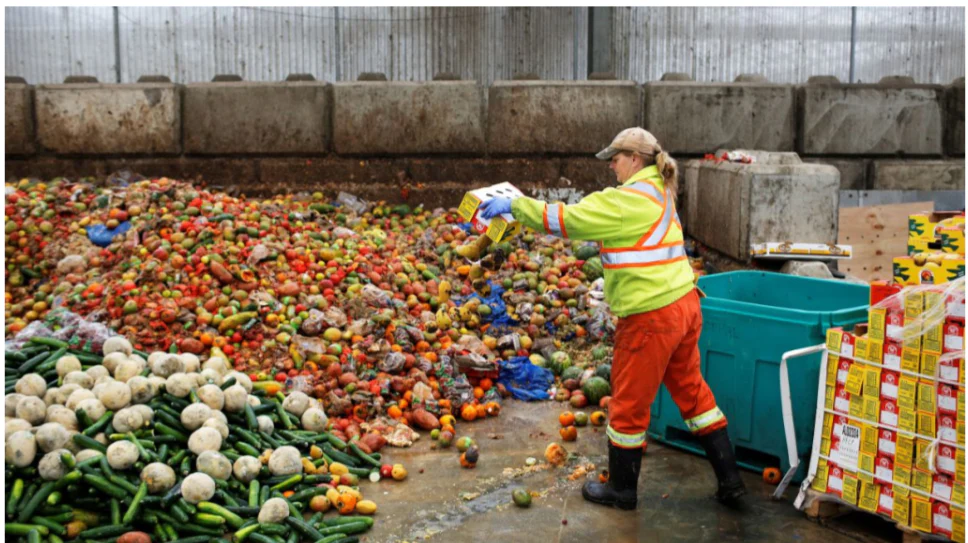Why Food Waste is a Growing Concern?
Food waste has become one of the most pressing environmental issues of our time. Each year, about one-third of all food produced globally is lost or wasted, according to the United Nations Food and Agriculture Organization (FAO). In the U.S. alone, nearly 40% of food goes uneaten, contributing to landfill buildup, unnecessary greenhouse gas emissions, and wasted resources like water and energy.
Beyond the environmental impact, food waste also has a financial toll. For an average household, this waste adds up to about $1,500 per year. And while food waste is a problem at every level of the food chain—from farms to retail stores—individual households make up a significant portion. In fact, the EPA estimates that 31% of food waste occurs at the consumer level, meaning that the habits we develop in our kitchens have a big role to play in tackling this issue.
The Effects of Household Food Waste
The impact of food waste isn’t just about trashing leftover food or produce past its prime. It extends to environmental, financial, and social spheres:
- Environmental Impact: Food waste in landfills doesn’t just take up space—it decomposes and produces methane, a potent greenhouse gas. According to the EPA, food waste is the largest contributor to methane emissions from landfills. In fact, if food waste were a country, it would be the third largest emitter of greenhouse gases, after China and the U.S.
- Financial Cost: Beyond just the $1,500 in wasted food for each household, food waste means wasting money spent on production, processing, and distribution. According to a study by ReFED, a national nonprofit focused on food waste, reducing food waste by just 20% could save consumers $5 billion annually.
- Wasted Resources: It’s not just food that goes to waste. Each year, the production of wasted food uses about 21% of the U.S.’s fresh water, 18% of cropland, and 19% of fertilizer. By wasting less food, we could conserve resources that are otherwise squandered.
A notable case study underscores these points: In South Korea, a 2013 initiative introduced pay-as-you-go waste disposal fees, where households paid according to the amount of waste they disposed of. This program led to a nearly 30% reduction in food waste within three years, highlighting that change in behavior can indeed lead to impactful results.
Practical Tips for Reducing Food Waste in Your Kitchen
Reducing food waste may seem like a challenge, but by adopting a few mindful habits, we can make a big difference. Here are some practical tips to help reduce waste at home.
1. Plan Meals and Shop Smart
- Meal Planning: Planning meals ahead of time helps prevent impulsive purchases and minimizes excess buying. Outline what you want to cook for the week, and make a list of the ingredients you’ll need. This not only reduces waste but also cuts down on the number of trips to the grocery store.
- Buy Only What You Need: Bulk buying can lead to waste if perishable items go bad before you can use them. Stick to the quantities you need, especially for perishable items like fresh produce and dairy.
- Check Your Inventory: Before you shop, take stock of what you already have. Checking your pantry, fridge, and freezer can prevent you from buying duplicates and will help you use up what’s on hand.
2. Understand Food Expiration Labels
- Best-By vs. Use-By: According to the Natural Resources Defense Council (NRDC), confusion over date labels contributes to 20% of consumer food waste. “Best-by” dates indicate quality, not safety, so products are often still safe to eat even after this date. On the other hand, “use-by” dates indicate the last recommended date for peak quality. Learn to distinguish these dates to reduce unnecessary tossing.
- Trust Your Senses: While date labels are a helpful guideline, your senses can be just as valuable. Look, smell, and taste items before throwing them away—often, foods are perfectly fine even if they’re slightly past the best-by date.
3. Store Food Properly
- Use Airtight Containers: Storing leftovers and opened foods in airtight containers helps extend their shelf life. This is particularly useful for perishables like fresh produce, dairy, and cooked meals.
- Use the Fridge and Freezer Effectively: Certain foods are better stored in specific areas of your fridge. For example, fruits and vegetables tend to last longer in crisper drawers, while dairy products fare well in colder sections. Freezing food is also a great way to extend its life. For example, extra vegetables, meat, and even bread can be frozen and used later.
4. Get Creative with Leftovers
- Repurpose Ingredients: Use overripe fruits for smoothies, freeze or dehydrate extra herbs, and make stocks from vegetable scraps. Repurposing food instead of discarding it not only reduces waste but can also add variety to your meals.
- Try “Leftover Nights”: Designate a night each week for finishing leftovers. This habit can reduce the need for new ingredients and ensures that food you’ve already made doesn’t go to waste.
- Composting as a Last Resort: Not all waste is avoidable, but composting can prevent food scraps from ending up in a landfill. Composting is a sustainable way to dispose of inedible food scraps, like eggshells, coffee grounds, and peels, and turn them into nutrient-rich soil for plants.
5. Experiment with a Food Waste Challenge
- Track Your Waste: For one week, note everything you throw away, from leftover food to wilted produce. This activity can give you insights into where you’re over-purchasing and which foods are going to waste.
- Set Small Goals: If tracking feels like too much, start by setting small goals, like using up all vegetables in your fridge each week or sticking strictly to your shopping list. Even small efforts contribute to significant change over time.
Real Results: Impact of Small Changes
Let’s look at how these changes made a difference for families involved in a pilot program with Lean Path, a company dedicated to reducing food waste. The program helped families track their waste, plan meals, and understand how to use food more efficiently. Participants reported a 20% reduction in food waste after just a month, simply by planning meals and storing food properly. These changes also helped them save up to $60 per month in groceries, showing that small actions in the kitchen can lead to tangible financial and environmental benefits.


